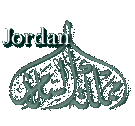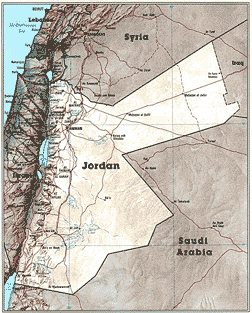An incredible country of proud, friendly, hardworking people. Jordan has very little in the way of natural elements (like Oil) so its people, who are well-educated, are it's greatest resource. Jordanians citizens range from the Bedouins, many of whom live in the desert regions to computer technicians living and working in Amman.
Jordan has archeological sites dating as far back as 4000 BC. Jerash, the largest Middle Eastern city of the Roman Empire, is in Jordan as is the ancient Nabatean city of Petra.
One of the most beautiful spots in Jordan, or anywhere in the world for that matter, is Wadi Rum, which is situated in the southeastern part of the country.



